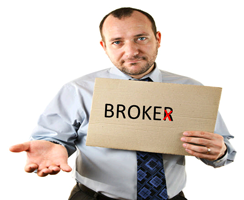What is the difference between a broker and a dealing center?
Some traders open an account with a company they like without even considering whether it's a broker or a dealing center, while others persistently seek out a broker-agent, believing this option to be much more reliable.
seek out a broker-agent, believing this option to be much more reliable.
So what's the difference between a real broker and a dealing center?
Is this difference significant enough to warrant consideration when choosing a company to handle your trades on the forex market?
Currently, several types of companies offer services to Russian traders:
Brokers independently process trades on the foreign exchange market. These are primarily large brokerage firms with access to the interbank foreign exchange market. In reality, there aren't that many of them.
The main advantage of brokers is execution speed and typically low spreads. They typically don't promise fabulous bonuses when replenishing accounts. However, the initial deposit is rarely less than $1,000.
An introducing broker works through a large broker with direct access to the market, resulting in slightly slower execution and a slightly higher risk of problems. Such companies offer large bonuses to attract clients, often compensating for this with higher spreads.
Introducing brokers are often referred to as dealing centers (DCs), although this is not entirely accurate, as currency dealing is the sale or purchase of currency on the exchange, and it is carried out by both brokers and their representatives.
The characteristics of companies currently operating on the Forex market make it clear how a real broker differs from a "DC." Therefore, if you plan to trade large amounts, it's better to choose companies like AForex or Alpari .

